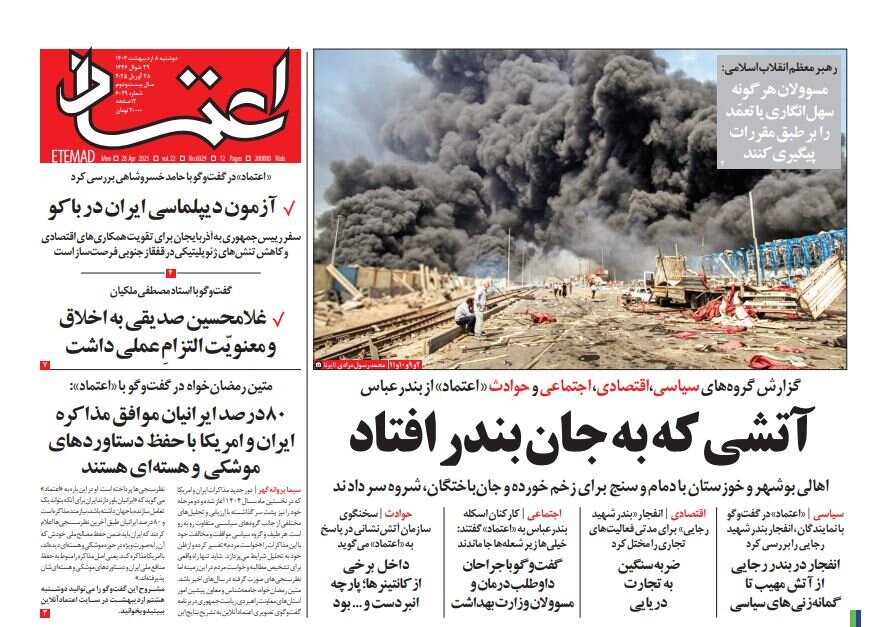Tehran – In the commentary, Etemad tackles the challenging terms of Iran-US negotiations, writing: A group of observers believes Trump’s unique instincts and his special style of negotiation could lead to positive outcomes, prevent war with Iran and undermine extremists in Washington and Tel Aviv.
Trump recognizes in his second term that Netanyahu could be one of the biggest obstacles to the deal with Iran. Now, if Trump continues to resist Netanyahu and resist the Republicans and some of his advisors, he may be able to reach a critical agreement with Iran. However, observers consider another variable that affects Donald Trump’s approach to negotiations with Iran. Steve Witkov led the US delegation, but like in his previous two-round meetings in Oman and Italy, the appointment of senior US State Department official Michael Anton as head of the US technical team has once again urged analysts to evaluate Trump’s true approach.
Arman-e-Melli: Trump is looking for achievements
In the memo, Ahman Emery discussed Trump’s efforts to reach an agreement with Iran after failing to deal with tariff issues. The paper draws attention in the comments of negotiation officials: data and codes published by the Foreign Minister Oman after the third round of negotiations, highlighting the complexity of the negotiations. Emphasizing the constructive nature of the consultation, he announced on May 3 that a high level of negotiations will take place between the parties. Now doubts come to mind as to whether Iran and the US president will meet, or whether Iran and the US foreign ministers will sit for negotiations. Of course, some experts say they intend to reach a good agreement with Tehran that Trump has failed to achieve a successful tariff dispute with China, Canada, Panama and other foreign policy priorities and therefore has led to a good agreement with Tehran to have an acceptable record that can be presented to the American people. Therefore, he needs to understand with Tehran to make a deal.
Iran: Relations with Africa must be intentional
In its analysis, the Iranian newspaper discussed the third Iranian-Africa Cooperation Summit in Tehran, writing: Given its needs and capabilities, Iran can also play a role on the continent. From a political standpoint, Africa has 54 countries and has achieved important positions in international forums such as the United Nations and the International Atomic Energy Agency. Cooperation with African countries can provide effective political support to Iran. Iran’s success in Africa is limited by relying solely on government and ignoring the role of the private sector. To gain foothold in the African market and enjoy the capabilities of the continent, we must develop relationships with selected African countries with more accurate knowledge, appropriate planning, and active private sector participation.
Shag: The impact of regional tensions on Iran’s national security
Sharg dedicated his headline to the rising tensions between India and Pakistan. It writes: tensions or conflicts in the geopolitical sphere surrounding Iran, particularly in areas where two nuclear forces exist, such as India and Pakistan, have a direct and ripple effect on our country’s national security. As a country that shares its borders with Pakistan and has established longstanding strong economic, commercial and cultural ties with India, Iran is not indifferent to the development of the region. The escalation of the conflict between India and Pakistan could create waves of instability in areas that directly affect Iran’s eastern border, especially if it leads to full-scale military conflicts. Given the highly unstable situation, Iran needs to play the mediator. By embracing this role, Tehran can prevent the region from becoming a crisis centre and protect its national interests and safety from the negative effects of potential conflicts. This security motive will promote Iran’s foreign policy towards a more proactive approach to managing local tensions.

